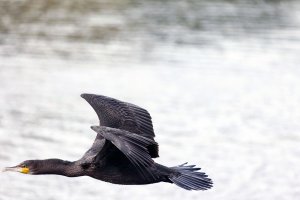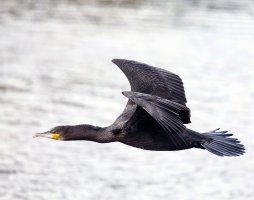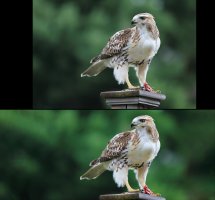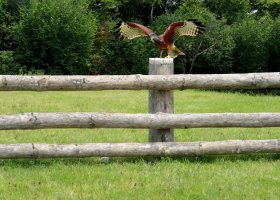I do photography for myself. My photos represent photons that I captured with my camera at a certain instance in time.
One genre that I enjoy is nighttime photography. I use a star tracker to minimize star trailing. This setup is fiddly and takes time to set up and calibrate, but I enjoy doing this. I am aware that these days you can point a smartphone at the sky (handheld) and get a beautiful image of the Milky Way with intricate detail in nebulas and such. An image such as this is a collage, with the image of the sky derived from the training dataset. The image may even be a reasonable representation of the night sky, but the image doesn't represent photons captured by the smartphone. The smartphone image merely serves to guide the AI algorithm.
Yes, AI can create all sorts of digital art where mountains and lakes appear out of nowhere. These images do not represent reality. But right now I see a lot of use of AI to create reasonably accurate images; for example, noise reduction and upscaling. Suppose I have a low-res landscape image and I upscale it. It may have a pine tree in it, and the AI algorithm latches on to this and replaces my pixels with more detailed pixels from a pine tree in its training dataset. It goes through my image in minuscule detail, copying and pasting from the training dataset, replacing my pixels with someone else's.
Is this photography? Is this my image? Should I be giving credit to the millions of photographers who have contributed (perhaps unknowingly) to the training dataset?
I think that when photography transitioned from analog to digital, we introduced a certain amount of laziness. Take the picture and fix it in post. I think AI is going to create more laziness - just point your smartphone and an amazing surreal image will be generated. The question is: is this photography? Or are we using our smartphones to search a database to find someone else's work?
As for forensic photography - I think this is one area where AI should be used, but with caution. If AI can be used up upscale a grainy surveillance camera image with a high probability of being reasonably accurate, then why not do this?
I'll get off my soapbox now. Thank you for listening.
One genre that I enjoy is nighttime photography. I use a star tracker to minimize star trailing. This setup is fiddly and takes time to set up and calibrate, but I enjoy doing this. I am aware that these days you can point a smartphone at the sky (handheld) and get a beautiful image of the Milky Way with intricate detail in nebulas and such. An image such as this is a collage, with the image of the sky derived from the training dataset. The image may even be a reasonable representation of the night sky, but the image doesn't represent photons captured by the smartphone. The smartphone image merely serves to guide the AI algorithm.
Yes, AI can create all sorts of digital art where mountains and lakes appear out of nowhere. These images do not represent reality. But right now I see a lot of use of AI to create reasonably accurate images; for example, noise reduction and upscaling. Suppose I have a low-res landscape image and I upscale it. It may have a pine tree in it, and the AI algorithm latches on to this and replaces my pixels with more detailed pixels from a pine tree in its training dataset. It goes through my image in minuscule detail, copying and pasting from the training dataset, replacing my pixels with someone else's.
Is this photography? Is this my image? Should I be giving credit to the millions of photographers who have contributed (perhaps unknowingly) to the training dataset?
I think that when photography transitioned from analog to digital, we introduced a certain amount of laziness. Take the picture and fix it in post. I think AI is going to create more laziness - just point your smartphone and an amazing surreal image will be generated. The question is: is this photography? Or are we using our smartphones to search a database to find someone else's work?
As for forensic photography - I think this is one area where AI should be used, but with caution. If AI can be used up upscale a grainy surveillance camera image with a high probability of being reasonably accurate, then why not do this?
I'll get off my soapbox now. Thank you for listening.
Upvote
0




